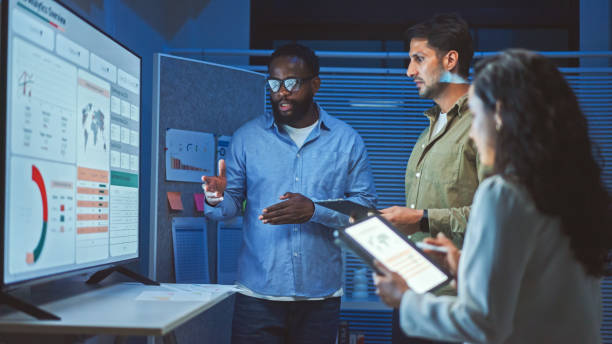We live in a time of complex challenges—technological, ecological, and social. How can we as a university respond to these, Professor Hofmann?
Prof. Thomas F. Hofmann: The current situation in the USA sadly illustrates what can happen when elite universities develop too detached from wider society. I am convinced that future-oriented universities must align all their academic excellence even more closely with societal needs in the future. Universities that only concern themselves with themselves in their ivory towers will hardly be able to fulfill their societal mandate. On the contrary, only “open universities” that have the courage to address people’s expectations, questions, and concerns in their innovation processes will develop the creative power expected of them.
This requires a holistic rethinking from a technology-driven to a society-centered university: ‘Society-centered Research & Innovation’ – this will enable us to focus more on responsible and trustworthy, even socially acceptable innovations. We combine disciplinary expertise, utilize design intelligence, and create new approaches to solving complex challenges that cannot be addressed in introverted silos of thought.
A key measure at TUM to achieve this is the Munich Design Institute (MDI). What added value do approaches from design research offer?
Prof. Thomas F. Hofmann: The Munich Design Institute is a core element of our reorientation. As an integrative research institute, it acts as a connecting thread between the schools to unlock transdisciplinary innovation potential. It integrates behavioral analysis, manufacturing techniques, product development, technical design, rapid prototyping, and much more to unleash the creative abilities of students, researchers, and prospective entrepreneurs, creating entirely new, value-creating impacts on the design of technologies, products, software, processes, and change trajectories.
Prof. Annette Diefenthaler: Design is inherently a discipline that actively promotes interdisciplinary collaboration—with a broad spectrum of methods and collaborative processes. With the MDI, we bring together designers, industry partners, citizens, and researchers to work together on solutions to key future issues. We make things understandable so that people of different educational levels, cultural or socioeconomic backgrounds, and of all ages can access them. This is particularly important in the context of rapid technological advancements. It often causes fear and makes people look back rather than forward.
With creative imagination, we can make multiple future scenarios tangible and vivid in design. We also call this future literacy: it enables us to try out the future and make decisions based on it.
This allows diverse people to participate in a design process. This sense of self-involvement and self-efficacy, in turn, gives rise to the hope that a future worth living can actually be realized.
What is design?
Design is the discipline that creates visionary, strategic, and implementable solutions for a livable future: Creative ideas emerge in iterative and non-linear processes and are then developed further in a targeted manner. Prototyping and visualization, especially in interdisciplinary collaboration, create a shared understanding.
Originally focused on form and function, design today shapes complex systems, experiences, organizations, and even political processes.
What does this mean specifically for the development of new technologies?
Prof. Annette Diefenthaler: A society consists of many different people with different value systems, whom we involve in the development process. That’s not easy. We want to approach this in three areas.
By co-creating the research question itself: At the moment, researchers define what questions are important to us. But what concerns society? Establishing mechanisms to bring research questions into the university is a first step. The second step is the active participation of people from society in the research and design process. And the third is translating scientific knowledge into relevant, concrete solutions.
And above all, there’s the question: Is what we’re working on here even a problem worth solving? This critical questioning is a way of acting and a stance that requires the courage to take detours.
Can you describe the exchange with other research fields in more detail?
Prof. Annette Diefenthaler: Design has always evolved through collaboration with and inspiration from other disciplines. At TUM, we have the unique opportunity to learn through collaboration with other research fields and application domains, thus advancing our own discipline—both methodologically and content-wise.
Prof. Thomas F. Hofmann: For example, the MDI will also support the design of the new TransforM Cluster of Excellence. Here, social science questions and societal implications will be incorporated into the innovation process from the very beginning in order to find solutions that go beyond purely technical and scientific approaches. By applying design approaches and incorporating social values and expectations, we avoid working on technologies that are not sustainable or socially relevant, or for which there is no market. We therefore expect the MDI to be an exciting addition, especially for start-ups.
Design processes also play a key role in the further development of artificial intelligence. How can new AI developments meet social, regulatory, and ethical requirements—and thus benefit society holistically? We are working on such questions at the Konrad Zuse School of Excellence in Reliable AI (relAI) and the Center for Responsible AI Technologies , among others . And at the TUM School of Social Sciences and Technology (SOT) and the TUM Center for Educational Technologies, we are investigating the impact of AI on the way we conduct research and impart knowledge in the future, and how we will use AI meaningfully.
A further step in this direction is the new Master’s program “AI in Society .” In addition to technical skills, students acquire a profound understanding of society and learn how to drive responsible AI innovations, steer their complex regulations in the right direction, and thus promote technologies for a better future.
Munich Center for Transformative Technologies and Social Change
Cluster of Excellence TransforM
Developments such as robotics, artificial intelligence, and autonomous driving can fundamentally change social, economic, or cultural structures. Researchers at the TransforM Cluster of Excellence in the social sciences are investigating from the outset how new technologies impact society and how their transformative potential can be leveraged. In doing so, they aim to rethink theories and methods of participation, legitimacy, responsibility,
